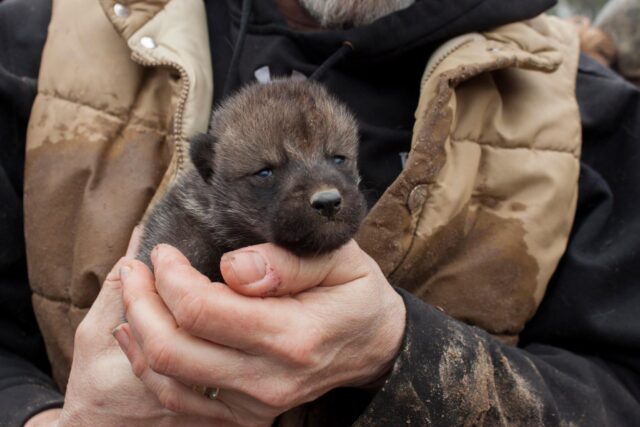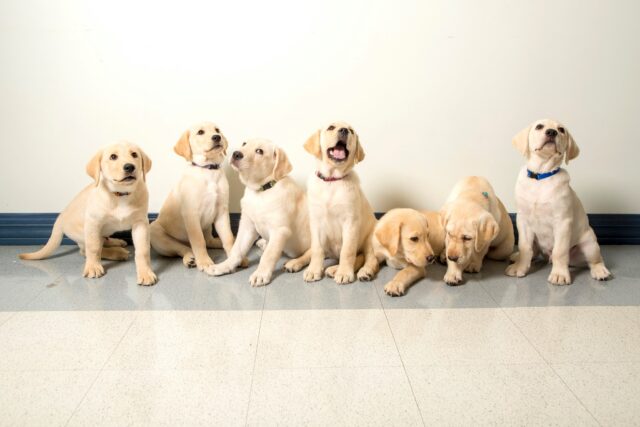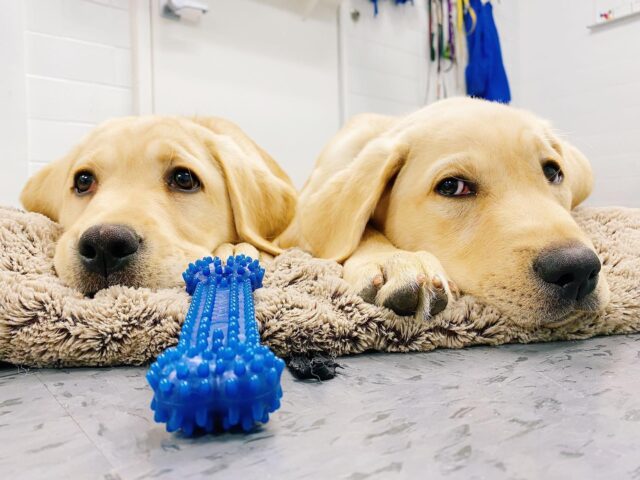Some might argue that wolf puppies are just as cute as dog puppies. The two have very similar appearances, making us want to cuddle both of them. But just because they look alike doesn’t mean they’ll act the same. New research shows that wolf puppies will never “get” humans as dogs can. No matter how closely they’re raised to humans, they’ll always have a different understandings of people.
Dogs and wolves are both incredibly smart, but dogs have evolved to better understand human actions, emotions, and cues. It’s how they’ve earned the label “man’s best friend!”

How Wolves vs. Dogs Think
Dogs and wolves are closely related, but in the present day, they have very different needs. So, a recent study looked at the development pattern of 44 dog puppies and 37 wolf puppies. The dogs are Golden Retrievers, Labrador Retrievers, or mixes of the two while all the wolves are grey wolves. All puppies in this study are between five and 18 weeks old.
Shortly after birth, people raised the wolf puppies closely, with human contact around the clock. Yet, the dog puppies were surrounded by their mom and littermates until about eight weeks old. Then, their only interactions with humans were during essential care requirements. Researchers tested these puppies on human interactions.

For the test, researchers hid a treat in one of two bowls. A human pointed to the bowl with the treat in it. In another test, a human set a wooden block next to the correct bowl.
In both scenarios, the dogs were more likely to pick the bowl with the treat on the first try. They seemed to pick up on the human cues with no training at all. However, the wolf puppies seemed to randomly guess instead of relying on humans.

The Dog-Human Bond is Special
The results showed that 17 of the dogs consistently guessed the correct bowls while all the wolves seemed to randomly guess each time. During the study, researchers also noted that the dogs were about 30 times more likely to approach human strangers than the wolves were. When presented with a closed treat container, wolves were more likely to figure out how to open it on their own while dogs often turned to humans for help.
However, these results don’t prove that dogs are “smarter” than wolves. Both dog and wolf puppies scored similarly in memory and motor impulse control during the test. Instead, it shows that dogs evolved differently to adapt to new surroundings. Dogs have evolved to thrive in household environments while wolves are still wild animals with survival instincts.

“With the dog puppies we worked with, if you walk into their enclosure, they gather around and want to climb on you and lick your face, whereas most of the wolf puppies run to the corner and hide,” said Hannah Salomons, an author in the study.
There’s always more to learn about the behaviors of animals. Researchers hope to later focus on what abilities wolves are better than dogs at. But for now, this recent research confirms one important fact: our dogs love us and understand us!

H/T: cnn.com
Featured Image: Duke Canine Cognition Center Facebook
 Toledo, United States.
Toledo, United States.